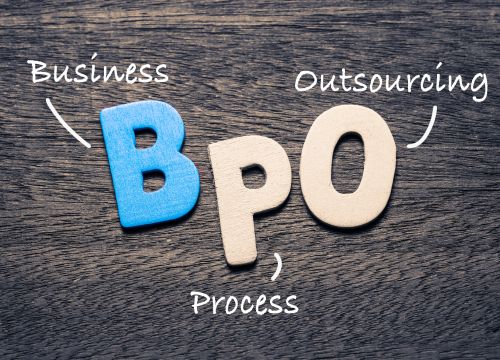Introduction
Managing a business involves balancing multiple responsibilities, from operations and finance to marketing and staffing. Amid all these duties, protecting your business from unforeseen risks is critical. This is where a Business Owner’s Policy (BOP) comes into play.
A BOP is an insurance package tailored to meet the typical coverage needs of small and medium-sized businesses. It simplifies insurance by bundling essential coverages into a single policy that is usually more affordable than purchasing each insurance separately.
In this article, we’ll explore what a BOP covers, who should consider it, the benefits, costs, and how to decide if it’s right for your business.
What Is a Business Owner’s Policy (BOP)?
A Business Owner’s Policy (BOP) is a comprehensive insurance plan designed specifically for small to medium businesses. It typically combines the following coverages:
- General Liability Insurance: Protects against claims for bodily injury, property damage, and personal injury that occur on your premises or because of your operations.
- Commercial Property Insurance: Covers damage or loss to your business property, including buildings, equipment, inventory, and furniture.
- Business Interruption Insurance: Also called business income insurance, it covers lost income and operating expenses if your business must temporarily close due to a covered event like fire or natural disaster.
Many BOPs also allow you to add optional coverages such as:
- Cyber Liability Insurance
- Professional Liability Insurance
- Equipment Breakdown Insurance
- Employee Dishonesty Coverage
Who Needs a Business Owner’s Policy?
BOPs are best suited for small to medium-sized businesses that:
- Own or lease physical premises (office, retail store, warehouse)
- Want to combine essential coverages for cost savings
- Need protection from common business risks like lawsuits and property damage
- Operate in low to moderate risk industries
Typical businesses that benefit from BOPs include:
- Retail stores
- Restaurants and cafes
- Small manufacturers
- Contractors and tradespeople
- Professional service providers (consultants, agencies)
- Offices and administrative businesses
What Does a BOP Cover?
1. General Liability Insurance
This coverage protects your business if someone is injured on your property or if your business causes damage to a third party’s property. It covers:
- Medical expenses for injured parties
- Legal defense and settlements if your business is sued
- Claims of libel, slander, or copyright infringement (depending on the policy)
2. Commercial Property Insurance
This protects your business assets from risks such as:
- Fire and smoke damage
- Theft and vandalism
- Storms and natural disasters (some exclusions may apply)
- Damage to buildings, equipment, inventory, and furniture
3. Business Interruption Insurance
If your business operations are halted due to a covered event, business interruption insurance can:
- Replace lost income
- Cover rent, payroll, and utilities during downtime
- Help you recover quickly without severe financial strain
Optional Add-Ons in a BOP
Depending on your business needs and insurer offerings, you can add:
- Cyber Liability Insurance: Protection against data breaches and cyberattacks.
- Professional Liability Insurance: Coverage for errors, omissions, or negligence in professional services.
- Equipment Breakdown Insurance: Covers repairs or replacement of critical machinery or equipment.
- Employee Dishonesty Coverage: Protection against theft or fraud by employees.
Benefits of a Business Owner’s Policy
- Cost Savings: Bundling multiple coverages usually results in lower premiums than buying policies separately.
- Simplified Management: One policy, one bill, and one renewal date make insurance easier to manage.
- Comprehensive Protection: Covers most common risks small businesses face.
- Customizable: Add-ons allow businesses to tailor coverage to specific needs.
- Peace of Mind: Helps protect your business’s financial future from unexpected losses.
How Much Does a Business Owner’s Policy Cost?
The cost of a BOP varies widely based on:
- Business size and industry
- Location and property value
- Revenue and number of employees
- Risk profile and claims history
On average, small businesses might pay between $500 to $3,000 per year for a BOP, but these numbers can vary. It’s best to get personalized quotes from multiple insurers.
How to Choose the Right Business Owner’s Policy
Step 1: Evaluate Your Risks
Understand your business’s unique risks and insurance needs.
Step 2: Compare Policies and Quotes
Review coverage limits, exclusions, deductibles, and premiums across different insurers.
Step 3: Check Insurer Reputation
Look for insurers with strong financial ratings and good customer service.
Step 4: Customize Your Policy
Add endorsements or optional coverages as needed.
Step 5: Review Regularly
As your business grows or changes, revisit your insurance to ensure adequate coverage.
Real-Life Example
A local bakery has a BOP that includes general liability, property insurance, and business interruption coverage. One day, a small fire damages their kitchen. Thanks to their BOP:
- The bakery’s property insurance covers repair costs.
- Business interruption insurance replaces lost income during the closure.
- Liability coverage protects them if a customer claims injury during the incident.
Without a BOP, the bakery could have faced severe financial loss.
Conclusion
A Business Owner’s Policy (BOP) is an excellent insurance solution for small to medium-sized businesses looking for comprehensive, cost-effective coverage. By bundling essential protections like general liability, property insurance, and business interruption into one policy, a BOP helps safeguard your business from common risks.

